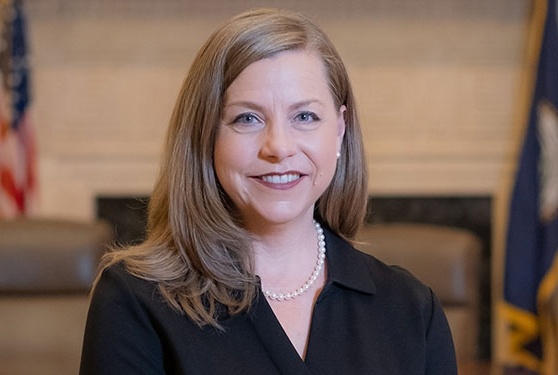
Trump's nomination of Federal Reserve Governor Michelle Bauman as the central bank's chief banking regulatory officer has drawn market attention. This decision not only marks a significant shift in US financial regulatory policies, but also indicates that Washington's regulatory approach to the banking industry is gradually returning from strict post crisis controls to a more relaxed and market-oriented model.
Firstly, Bauman's inauguration is widely interpreted as a signal of the Trump administration's attempt to relax financial regulation. Over the past decade, the US financial regulatory framework has mainly revolved around the Dodd Frank Act, which was enacted after the 2008 financial crisis. The core concept is to ensure the stability of the banking system through higher capital requirements and stricter liquidity regulations. But this strict regulation also imposes high compliance costs on the banking industry and to some extent affects lending capacity and market liquidity. Bauman has always been critical of these strict regulatory measures, especially the rules proposed by former Federal Reserve Vice Chairman for Regulation Michael Barr to strengthen capital requirements. She believes that although these capital rules aim to enhance the stability of the banking system, if they are excessive, they will lead to banks reducing credit allocation, thereby suppressing economic growth. She tends to develop differentiated regulation based on the size and risk profile of the bank, rather than raising capital requirements across the board. Bauman's position is highly consistent with the Trump administration's attitude towards banking regulation over the past few years. The Trump administration has been pushing to weaken some core provisions of the Dodd Frank Act since its first term, and Bauman's nomination suggests that Trump may want to further tilt towards the banking industry in regulatory issues.
Secondly, for the banking industry, Bauman's nomination is undoubtedly good news. Major banking institutions in the United States, such as Goldman Sachs and JPMorgan Chase, have actively opposed the Federal Reserve's reform of capital requirements in the past year, and Bauman's position is highly consistent with their demands. Goldman Sachs CEO David Solomon publicly stated that Bauman's appointment has "excited" the banking industry.
In addition, the American Bankers Association also expressed support for Bauman, believing that she is a "thoughtful and principled" regulator who understands the role of the banking industry in the economy. This means that Bauman may push regulatory agencies to consider banks' operational pressures more when formulating policies, rather than simply emphasizing financial stability. However, Bauman's policy stance may also spark controversy. Democrats and supporters of financial regulation in the US Congress may oppose measures to relax regulation, fearing that it will repeat the mistakes of the 2008 financial crisis. In addition, some economists have warned that if bank capital requirements are lowered and regulations are relaxed, it may lead to excessive credit expansion and increase systemic risks in the financial system.
From a macroeconomic perspective, Bauman's regulatory stance may have a certain driving effect on economic growth. Relaxing capital requirements for banks can enhance their lending capacity, thereby stimulating commercial investment and consumer demand. Trump's statement on social media also emphasized this point, stating that "economic mismanagement" has been ongoing for many years and it is time to make adjustments.
However, it is still uncertain whether this short-term benefit can translate into long-term stable economic growth. Historical experience shows that excessively loose financial regulation is likely to lead to asset foam and overheated markets. An important lesson from the 2008 financial crisis is that if the banking industry lacks sufficient capital buffers, it may fall into systemic risk once an economic recession occurs. Therefore, how to find a balance between relaxing regulation and maintaining financial stability tests Bauman's policy wisdom.
Finally, despite receiving support from the banking industry, Bauman's formal appointment still requires approval from the Senate. At present, the Republican Party has a certain advantage in the Senate, but Democratic lawmakers may raise sharp questions about Bauman during the hearing, especially regarding their stance on financial risk control. Therefore, although her nomination is likely to be approved, she still needs to go through political tests before officially taking office.
Overall, Bauman's appointment marks a potential turning point in the Federal Reserve's regulatory policy. Her appointment may promote the relaxation of banking regulation, bringing greater autonomy and flexibility to financial institutions. However, this policy adjustment may also bring certain financial risks, and whether it will trigger new market fluctuations still needs to be observed. In the future, how the Federal Reserve seeks a balance between economic growth and financial stability will be one of the key factors determining the outlook for the US economy.

Recently, the U.S. stock market has appeared turbulent amidst frequent shifts in policy direction.
Recently, the U.S. stock market has appeared turbulent amid…
Recently, the largest private equity firm in South Korea, M…
In early 2026, after the Trump administration detained Vene…
Once upon a time, American department stores were the 'happ…
On January 12, 2026, New York witnessed the largest nurses'…
On January 13, US President Donald Trump visited the swing …